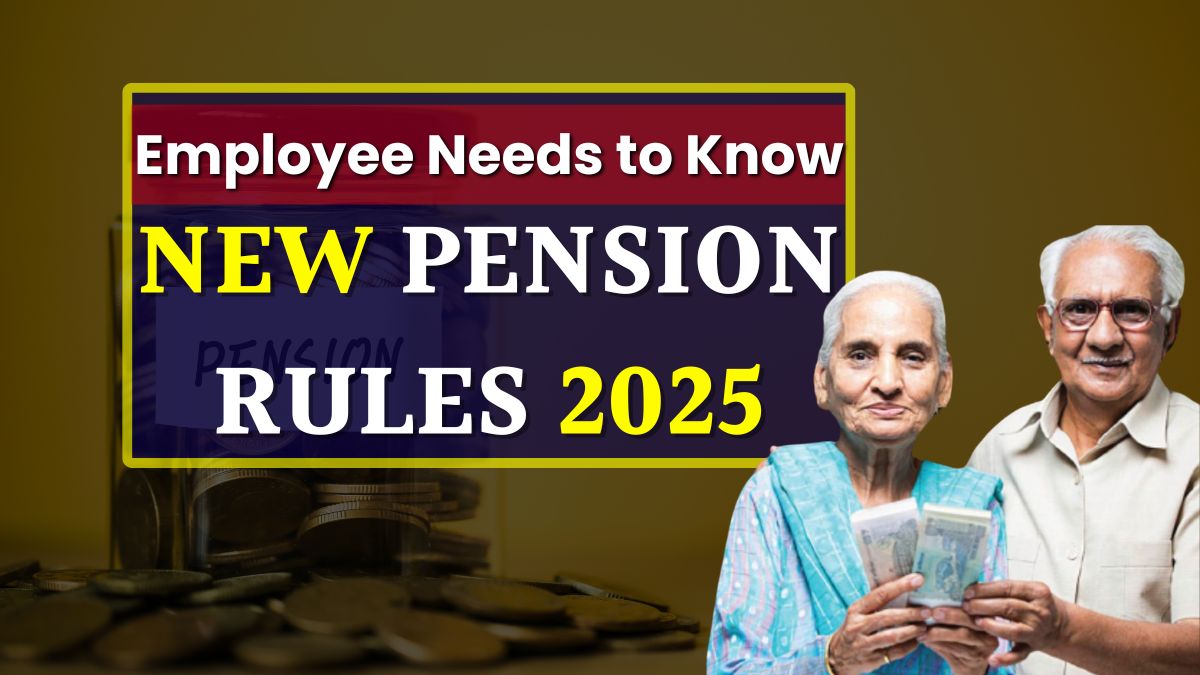Well, if you’ve worked in a Public Sector Undertaking (PSU) after being a Central Government employee, there’s been a big change you need to know about.
Let’s break it down together—clearly, honestly, and with empathy—so you can protect what you’ve earned.
WHAT’S CHANGED IN 2025?
Bold Changes to CCS (Pension) Rules Leave PSU Pensioners at Risk
The central government just made a serious amendment to the CCS (Pension) Rules under Rule 37(29C)—and it’s something you can’t afford to ignore.
Here’s what it means in plain English:
If you were a government employee who later joined a PSU (public sector undertaking), and you’re dismissed from that PSU for any misconduct,
→ you’ll now lose your retirement benefits from your original government service too.
Sounds unfair? Painful? Even terrifying?
You’re not wrong to feel that way.
But let’s walk through the facts first.
PREVIOUS RULE VS NEW RULE
| Rule | Before 2025 | After 2025 |
|---|---|---|
| Rule 37(29C) | If dismissed from PSU, you could still keep the retirement benefits earned under your government service. | If dismissed from PSU for misconduct, you now lose all retirement benefits from your earlier government service too. |
That’s a massive shift—and it hits hard.
WHO DOES THIS IMPACT?
If you:
- Were a Central Government employee,
- Later got absorbed into a PSU,
- Are either currently serving or retired from that PSU,
Especially if there’s any risk of being dismissed due to conduct issues.
WHAT ARE THESE RETIREMENT BENEFITS YOU COULD LOSE?
Let’s talk about what’s actually at stake—because we’re not just talking about one benefit. It’s a whole package that people depend on for survival after retirement.
Here’s what government employees (and their families) typically receive:
1. Commutation of Pension
- You can convert up to 40% of your pension into a one-time lump sum.
- No medical needed if done within a year of retirement.
- Example: If your monthly pension is $500, you could receive a sizable portion upfront.
2. Retirement Gratuity
- A one-time payout based on your salary and service years.
- Can go up to ₹20 lakhs (~$24,000).
- You must have at least 5 years of service to qualify.
3. Death Gratuity
- Given to your family if you pass away while still in service.
- No minimum service requirement.
- It’s support for your loved ones in their darkest hour.
4. Service Gratuity
- If you worked less than 10 years and don’t qualify for pension.
- One-time payout based on your final salary.
5. Deposit Linked Insurance (DLI) Scheme
- If you contributed to the General Provident Fund (GPF), your family could get an extra ₹60,000 on your passing.
- Requires minimum 5 years of service.
6. Contributory Provident Fund (CPF)
- You and your employer contribute to a retirement fund.
- On death or retirement, money is paid to you or your dependents.
- Includes survivor benefits for spouse, children, or parents.
7. Leave Encashment
- You’re paid for unused leave days (up to 300 days).
- Not a pension benefit—but a big help during retirement.
Now imagine losing all of this just because you were dismissed from your PSU role—even if your government service was spotless.
That’s the harsh reality under the new rules.
BUT WHY THIS CHANGE?
The government says it’s about accountability.
They want PSU employees to be held to the same standards as direct government employees—meaning misconduct can now lead to the loss of pension and benefits, regardless of where or when it happened.
It might make sense on paper, but in real life?
It feels like a betrayal to many who’ve given decades of their lives in honest service.
IS THERE ANY RECOURSE?
Yes, there’s still a small window of hope.
If you’re dismissed from a PSU, the final decision can be reviewed by the Ministry administratively concerned with that PSU. In other words, it’s not final until they say so.
So if you believe you were wronged, you still have the right to appeal.
FREQUENTLY ASKED QUESTIONS (FAQ)
Q1. I retired before 2025. Will this rule affect me?
If you’ve already retired and received your benefits, this rule likely won’t impact you. But check your specific case to be safe.
Q2. I was dismissed from a PSU years after my government service. Will I lose my pension?
Under the new 2025 rule, yes—your dismissal from the PSU (for misconduct) can forfeit the benefits earned during your time with the central government.
Q3. What counts as “misconduct”?
That’s up to the PSU’s disciplinary rules. It could range from ethical violations to criminal behavior. Always review your employment contract and internal code of conduct.
Q4. Can I challenge the decision?
Yes. The decision of dismissal and forfeiture can be reviewed by the concerned ministry. It’s not necessarily final.
Q5. Are private sector jobs after government service affected?
No. This rule specifically affects those who were absorbed into public sector undertakings (PSUs), not private firms.



